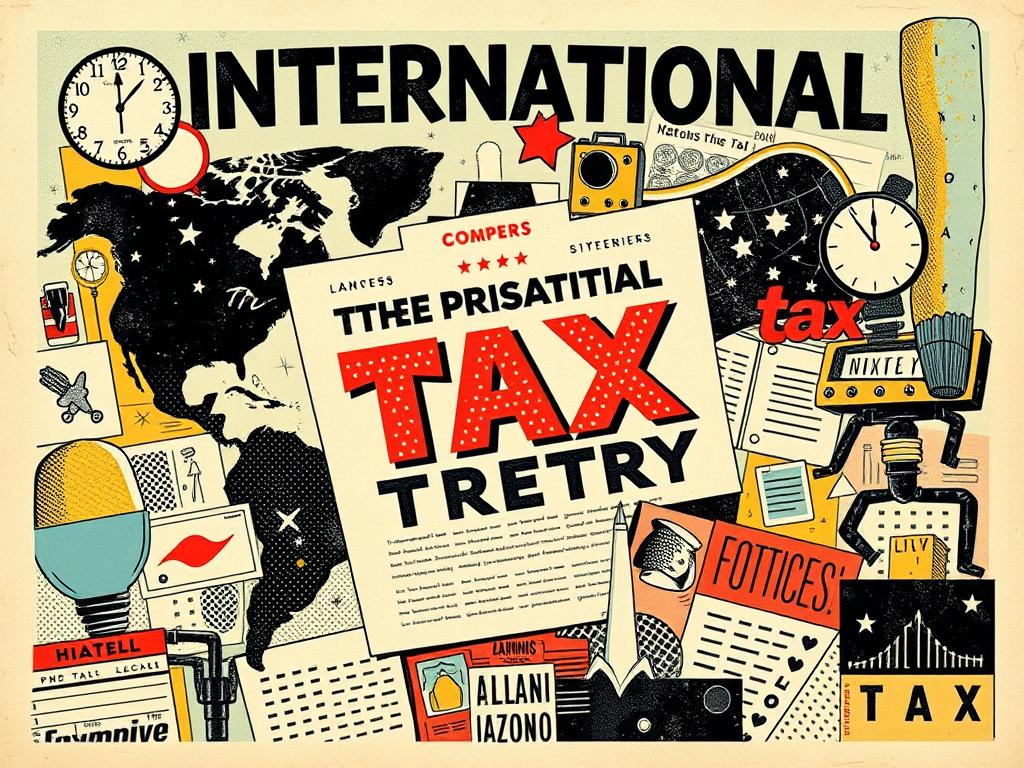Adapting to New Laws: How Zoning or Airbnb Regulations Could Affect Investments

Adapting to New Laws: How Zoning or Airbnb Regulations Could Affect Investments
Reading time: 15 minutes
Table of Contents
- Introduction
- Understanding Zoning Regulations
- The Impact of Airbnb Regulations
- Economic Implications of New Laws
- Adapting Investment Strategies
- Case Studies: Cities Implementing New Regulations
- Future Outlook
- Conclusion
- FAQs
Introduction
In the ever-evolving landscape of real estate investment, staying ahead of regulatory changes is crucial for maintaining profitability and ensuring long-term success. As cities worldwide grapple with housing affordability issues and the impact of short-term rentals on local communities, new zoning laws and Airbnb regulations are being implemented at an unprecedented rate. These changes can significantly affect the value and potential return on investment (ROI) of properties, making it essential for investors to understand and adapt to this new reality.
This comprehensive analysis will delve into the intricacies of zoning and Airbnb regulations, exploring their economic implications and providing insights on how investors can navigate these challenges. We’ll examine case studies from various cities, analyze market trends, and offer strategies for adapting investment approaches in light of these regulatory shifts.
Understanding Zoning Regulations
Zoning regulations are a fundamental aspect of urban planning, dictating how land can be used within specific areas of a city or municipality. These laws have a profound impact on property values, development potential, and investment opportunities.
Types of Zoning
1. Residential Zoning: Designates areas for housing, often with subcategories for single-family homes, multi-family units, and apartments.
2. Commercial Zoning: Allows for business operations, including retail stores, offices, and restaurants.
3. Industrial Zoning: Permits manufacturing, warehousing, and other industrial activities.
4. Mixed-Use Zoning: Combines residential and commercial uses, often promoting walkable, urban environments.
Recent Trends in Zoning Changes
Many cities are reevaluating their zoning laws to address housing shortages and promote sustainable urban development. Some key trends include:
- Upzoning: Allowing higher-density development in previously low-density areas.
- Transit-Oriented Development (TOD): Encouraging high-density, mixed-use development near public transit hubs.
- Inclusionary Zoning: Requiring developers to include a certain percentage of affordable housing units in new projects.
These zoning changes can create both opportunities and challenges for investors. For example, upzoning may increase the development potential of a property, potentially boosting its value. Conversely, inclusionary zoning requirements might impact profit margins on new developments.
The Impact of Airbnb Regulations
The rise of short-term rental platforms like Airbnb has disrupted traditional hospitality markets and raised concerns about housing affordability in many cities. As a result, municipalities are implementing various regulations to control the growth of short-term rentals.
Common Airbnb Regulations
- Licensing Requirements: Mandating that hosts obtain permits or licenses to operate short-term rentals.
- Occupancy Limits: Restricting the number of nights a property can be rented out annually.
- Primary Residence Rules: Allowing short-term rentals only in the host’s primary residence.
- Zoning Restrictions: Prohibiting short-term rentals in certain areas or types of properties.
- Tax Collection: Requiring hosts to collect and remit local taxes on rental income.
These regulations can significantly impact the profitability of short-term rental investments. For instance, occupancy limits may reduce potential rental income, while licensing requirements can increase operational costs.
Economic Implications of New Laws
The implementation of new zoning and Airbnb regulations can have far-reaching economic consequences, affecting various aspects of the real estate market and broader economy.
Housing Market Dynamics
Zoning changes and short-term rental regulations can influence housing supply and demand in several ways:
- Upzoning may increase housing supply, potentially moderating price growth in high-demand areas.
- Restrictions on short-term rentals could shift some properties back to the long-term rental market, potentially easing rental price pressures.
- Inclusionary zoning requirements may impact the feasibility of some development projects, potentially slowing new housing construction.
Investment Returns
The regulatory environment can significantly affect the ROI of real estate investments:
- Stricter Airbnb regulations may reduce the profitability of short-term rental investments, pushing investors towards traditional long-term rentals or other asset classes.
- Zoning changes that increase development potential could boost property values, benefiting existing property owners.
- New regulations may create opportunities for investors who can navigate the complex regulatory landscape and identify undervalued properties.
Labor Market Effects
Regulatory changes can also impact local job markets:
- Restrictions on short-term rentals may affect employment in the hospitality sector, particularly for cleaning and property management services.
- Zoning changes that promote mixed-use development could create new job opportunities in retail and service industries.
- The construction industry may see shifts in demand based on new zoning laws and development requirements.
Adapting Investment Strategies
In light of these regulatory changes, investors must adapt their strategies to maintain profitability and mitigate risks. Here are some approaches to consider:
Diversification
Spreading investments across different property types and locations can help mitigate the impact of localized regulatory changes. Consider a mix of residential, commercial, and mixed-use properties in various markets.
Focus on Compliance
Staying informed about local regulations and ensuring full compliance is crucial. This may involve:
- Obtaining necessary licenses and permits for short-term rentals
- Adhering to occupancy limits and other operational restrictions
- Properly collecting and remitting taxes on rental income
Long-Term Rental Conversion
For properties in areas with strict short-term rental regulations, consider converting to long-term rentals. While this may reduce potential income, it can provide more stable cash flow and reduce regulatory risks.
Value-Add Opportunities
Look for properties that can benefit from zoning changes, such as those in areas slated for upzoning or transit-oriented development. These properties may offer significant appreciation potential.
Partnerships and Joint Ventures
Collaborating with local experts or forming joint ventures can help navigate complex regulatory environments and identify promising investment opportunities.
Case Studies: Cities Implementing New Regulations
Examining how different cities have implemented and enforced new regulations can provide valuable insights for investors. Let’s look at a few notable examples:
Barcelona, Spain
Barcelona has implemented some of the strictest Airbnb regulations in Europe, including:
- Requiring all short-term rental properties to obtain a license
- Limiting the number of licenses issued
- Imposing heavy fines for unlicensed rentals
These regulations have significantly reduced the number of Airbnb listings in the city, pushing many investors towards long-term rentals or hotel investments.
New York City, USA
New York City has long battled with Airbnb over short-term rental regulations. Recent laws include:
- Prohibiting rentals of entire apartments for less than 30 days
- Requiring hosts to be present during short-term stays
- Mandating registration with the city for short-term rentals
These regulations have made it challenging for investors to operate short-term rentals profitably in New York City, leading many to explore alternative strategies or markets.
Tokyo, Japan
Tokyo implemented new short-term rental regulations in 2018, including:
- Limiting short-term rentals to 180 days per year
- Requiring hosts to register with the government
- Mandating that hosts keep guest records for future inspection
While these regulations initially led to a sharp decrease in Airbnb listings, the market has since adapted, with many hosts obtaining the necessary permits and adjusting their operations to comply with the new rules.
Future Outlook
As cities continue to grapple with housing affordability issues and the impact of short-term rentals, we can expect further regulatory changes in the coming years. Some potential trends to watch include:
- Increased use of technology for monitoring and enforcing short-term rental regulations
- More cities adopting inclusionary zoning policies to promote affordable housing development
- Growing emphasis on sustainable and transit-oriented development in urban planning
- Potential national-level regulations for short-term rentals in some countries
Investors should stay informed about these trends and be prepared to adapt their strategies accordingly. Those who can navigate the evolving regulatory landscape effectively may find unique opportunities in markets that others consider too challenging.
Conclusion
The implementation of new zoning laws and Airbnb regulations presents both challenges and opportunities for real estate investors. While these changes can disrupt existing business models and impact property values, they also create new possibilities for those who can adapt and innovate.
Successful investors in this new regulatory environment will need to:
- Stay informed about local and national regulatory trends
- Diversify their portfolios to mitigate risks
- Focus on compliance and build relationships with local authorities
- Be flexible and willing to adjust their strategies as needed
- Look for value-add opportunities created by zoning changes
By taking a proactive approach to understanding and adapting to new regulations, investors can position themselves for long-term success in the ever-changing real estate market. Whether you’re considering property for sale in peloponnese or exploring opportunities in major urban centers, staying ahead of regulatory changes will be key to maximizing your returns and minimizing risks.
FAQs
1. How can I stay informed about new zoning laws and Airbnb regulations in my area?
To stay informed, regularly check your local government’s website, attend community meetings, and join real estate investor associations. You can also set up Google Alerts for relevant keywords and follow local news sources that cover real estate and urban planning issues.
2. What are some alternatives to short-term rentals if Airbnb regulations become too restrictive?
Alternatives to consider include converting to long-term rentals, exploring mid-term rentals (30+ days) for corporate housing or traveling professionals, or pivoting to other types of real estate investments such as commercial properties or real estate investment trusts (REITs).
3. How might inclusionary zoning policies affect my development projects?
Inclusionary zoning policies may impact the profitability of development projects by requiring a certain percentage of units to be sold or rented at below-market rates. However, these policies often come with incentives such as density bonuses or tax abatements, which can help offset the costs. Carefully analyze the specific requirements and incentives in your area to determine the feasibility of your project.
4. Are there any technologies that can help me comply with new short-term rental regulations?
Yes, several software solutions can assist with compliance, including platforms that help manage licenses and permits, automate tax collection and remittance, and monitor occupancy limits. Some popular options include Hostfully, Uplisting, and Proper Insurance. Research the options available in your market to find the best fit for your needs.
5. How can I identify areas that might benefit from future zoning changes?
To identify areas with potential for favorable zoning changes, look for neighborhoods near public transit hubs, areas with aging housing stock, or districts targeted for revitalization in city planning documents. Additionally, attend local planning meetings and engage with city officials to gain insights into future development plans. Working with a local real estate agent or urban planning consultant can also provide valuable insights into potential zoning changes.

Article reviewed by Sophia Georgiadou, Global Expansion Consultant | Market Entry Strategist | Breaking Into Emerging Markets with Tailored Localization Plans, on May 15, 2025




